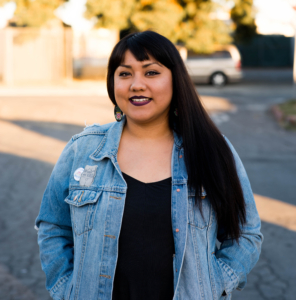Opting Out of the Holidays with Family
Many people look forward to the winter holiday season for time off to relax and be with loved ones. For others, this time of year brings an influx of complicated feelings. For those of us struggling with body image and an unhealthy relationship with food, already aggravated by how central food becomes during the holidays, the pressure to spend time with family can be overwhelming.
Our family relationships, unfortunately, may not be the healthiest relationships in our lives, especially where recovery is concerned. For many, this has been a difficult year. Some of us are holding on by a thread, and we don’t have the capacity to endure our families’ negative body comments, diet-talk, and the other usual yearly fiascos. For others, we have grown a lot in this year, and we wish to spend genuine time off.
Whatever the case may be, we have to be completely honest with ourselves, accept the feelings we are experiencing, and honor them. We are allowed to have periods of time when we do not have the strength within us to deal with family. When we recognize this, it is important to take the space we need. Why do we have to wait for New Year’s resolutions to start creating healthy boundaries? Boundaries are part of recovery and improving our own self-love.
At the 2017 BEDA Conference in partnership with NEDA, I had time to reflect on the importance of self-advocacy in recovery. More importantly, I was able to realize how lonely our recovery journeys can be as people of marginalized backgrounds. Although there is a lot of great work happening inside the eating disorders treatment world, there is still more work to be done inside our own communities and families.
For those of us in recovery, we have spent years working to understand and unlearn our own dysfunctional relationships to our bodies and food. In most cases, our families have not engaged in this work. We have to be our own guardian angels and our fiercest advocates in order to continue our healing journeys.
Many times, the only option we have is harm reduction. If we must spend time apart from families to prevent a bad night or a relapse, then that means we are only doing what is best for us and our healing. When we experience shame and guilt, we have to remember that these feelings have been imposed on us in order to control our bodies and lives.
I will say this once again: shame and guilt are agents of manipulation that do not permit us to live authentically. If you do decide to spend the holidays taking self-love time, watching a Netflix series, or taking a bubble bath, that’s okay. If you decide to spend time with other loved ones (and no, this is not betrayal), that is okay, too. Taking care of ourselves, loving ourselves, doesn’t mean we don’t love our families, too. We do love our families. Some of us do have a history of doing a lot for our families. We have simply decided to take a break this year, for our own health and well-being.
They may not understand, but then again, they don’t understand a lot about us. Part of recovery is accepting our feelings and looking out for ourselves. At the end of the day, only we know what it is like to live in our bodies and live with an eating disorder. Self-advocacy is something we must take very seriously to continue our personal growth.
Gloria is a Xicana womxn from California and the person behind Nalgona Positivity Pride. Gloria’s work has been featured on the Huffington Post, MiTú, Bitch Magazine, and The Body is not an Apology. She lives in Los Angeles with her partner and their cats, Pepita and Mister Orange.





